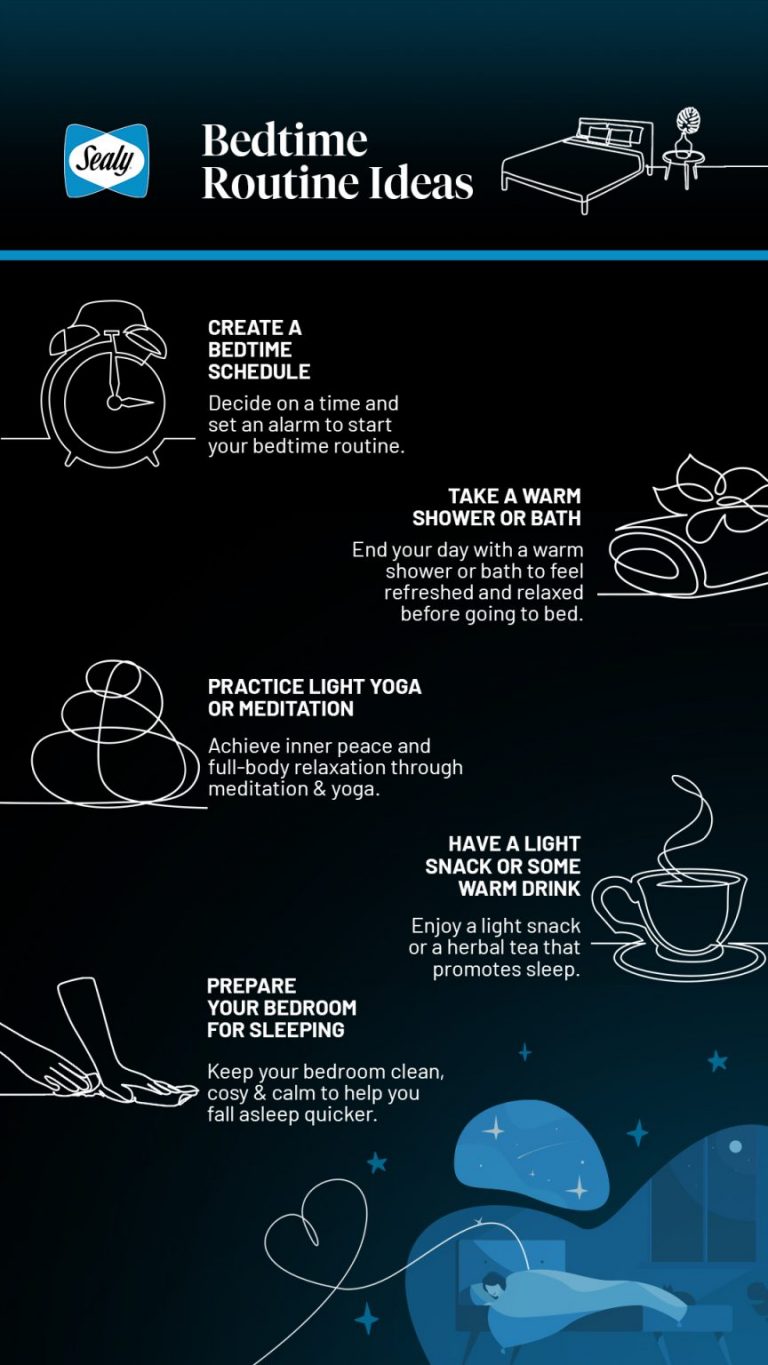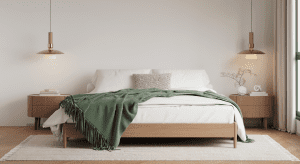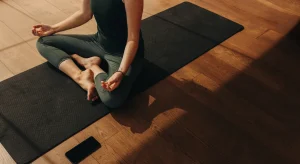
Back when we were still kids, most of us had a bedtime routine set by our parents. But as we turn into independent adults, we slowly pay less attention to our sleep routine due to factors such as working overtime, taking care of our child, and getting distracted by gadgets resulting in falling into a bad routine and poor sleep quality.
But don’t worry, the good news is — it is not yet too late to fix our bad nighttime habits. We are here to share some helpful tips for creating a good bedtime routine, especially for adults who want to achieve optimal sleep quality.
What Is a Bedtime Routine?
A bedtime routine includes a set of pre-bed tasks that you do consistently every night for about 30 minutes to 2 hours before you go to bed. Each individual can create their own routine that normally includes relaxing activities like meditation, reading or taking a warm bath to help them fall asleep quickly. This small lifestyle change can have a big impact on one’s physical and mental well-being in the long run.
Why Is a Bedtime Routine Important For Adults?
A consistent bedtime routine can help establish habits that give signals to your brain that it’s time to sleep. By doing the same set of activities consistently before bedtime, your mind and body would start recognizing those activities as a precursor to sleep. Essentially, its primary purpose is to help you drift into sleep within 15 minutes or less after turning off the lights.
Aside from falling asleep faster, some other key benefits of following a bedtime routine include:
- Being able to stay asleep longer
- Clears mind & body of the day’s stresses
- Helps with insomnia
- Reduces late-night stress and anxiety
- Improves mood & general mental well-being
Now that we’ve learned why bedtime routines are just as important for adults as it is for children, here are some ideas that you could incorporate into your bedtime routine.
Bedtime Routine Ideas For Adults

1. Create a Bedtime Schedule
We set a morning alarm to wake us up and start getting ready for the day. Let’s say you set your alarm at 7 a.m. and wake up at that exact time every day on weekdays. You’ll notice that even on weekends or your days off when you don’t need to set an alarm, as much as you want to sleep in, you still naturally wake up at 7 a.m. and cannot go back to sleep. That’s because sticking to a waking schedule trains your brain to wake up and start working at a certain time.
The same thing happens when you set a “bedtime alarm”. Just like how you start your morning routine, decide on a time and set an alarm to begin your bedtime routine every night anywhere between 30 minutes to 2 hours before you go to sleep. Doing this consistently would help train your brain’s sleep-wake cycle, making you naturally feel sleepy when it’s bedtime
2. Take a Warm Shower or Bath
Taking a shower or bath to end your day isn’t just to make you feel clean and fresh before you jump into your bed. But did you know that there’s real science behind showering or bathing at night that promotes sleep?
A research team from the University of Texas conducted a sleep study, reviewing over 5,000 published articles that linked bathing, water temperature, and sleep quality. The results showed that taking a bath or shower (also scientifically referred to as ‘Water-based passive body heating’) in water at 40°C to 43°C about one to two hours, ideally 90 minutes, before bedtime, can help you fall asleep an average of 10 minutes quicker than normal.
How does it work? Essentially, warm water helps change your body’s core temperature. It will increase your body temperature at first, but afterwards, your body will experience an even more pronounced dip in temperature that is responsible for promoting sleep.
3. Practice Light Yoga or Meditation
One of the major causes of sleeping difficulty is related to stress. That’s because stress leads to anxiety and tension, making it hard to fall asleep. Hence, it is important to quiet the distracting thoughts that keep you up at night which could be achieved through practising meditation and relaxation techniques.
Meditation has been known to achieve a sense of inner peace and clarity. Studies have found that it can help reduce cortisol, widely known as the “stress hormone”, whilst increasing our melatonin levels or our “sleep hormone” promoting restful sleep.
There are many types of meditations that you can try but here are the basic steps of meditation that you can do for 3 to 5 minutes to quieten your mind before bed:
- Find a quiet place where you can sit or lie down (whichever you feel most comfortable).
- Close your eyes. Inhale and exhale slowly and deeply.
- If a distracting thought pops up, refocus on your breathing.
Another relaxation technique that you can practice at nighttime is yoga. Research revealed that over 55% of yoga practitioners report improved sleep and over 85% report reduced stress. Incorporating light yoga into your bedtime routine may improve the quality of your sleep.
The key benefits of nighttime yoga are the following:
- Promotes relaxation
- Promotes mindfulness
- Improves sleep quality and quality of life
- Manages symptoms of insomnia
- Helps with weight loss
4. Have a light snack or some warm drink
While a heavy dinner can lead to indigestion, going to bed hungry can also upset your stomach and give you trouble falling asleep. It is recommended to opt for some healthy, light snacks that are sufficient to fill your stomach but would not disrupt your sleep hormones.
A few good examples of healthy bedtime snacks that naturally have high-melatonin content are:
- Nuts (especially Almonds)
- Oats
- Berries
- Fruits like cherries, strawberries, grapes and kiwi
- Milk
- Greek yogurt
Enjoying a warm cup of soothing herbal tea with sleep-promoting benefits like chamomile, lavender, and valerian root is another great way to induce sleep and alleviate insomnia. You can have your tea while reading a book or listening to calm music. Just make sure to empty your bladder before you go to sleep.
5. Prepare Your Bedroom For Sleeping
Lastly, ensure that you have the ideal setting for optimal sleep. You’d want your bedroom to be cosy, clean, and foster a sense of calmness that promotes sleep. You can freely incorporate your personal style into your bedroom’s interior design, however, some aspects are important to consider to make it the perfect place for you to relax and fall asleep:
- Warm appealing colours
- Usable layout/space, ensuring that it’s not too cramped
- Clutter-free
- Relaxing scent (e.g. aromatherapy & essential oils)
- Lighting that is not too bright
- A high-quality mattress that matches your needs
Remember to be patient with yourself when starting a bedtime routine. If you remain consistent enough, you will eventually train your mind and body to anticipate sleep at the same time every night!





